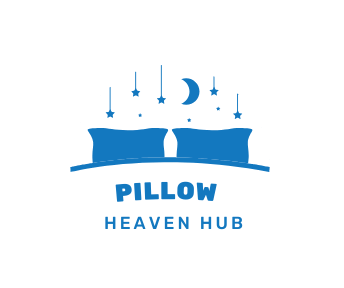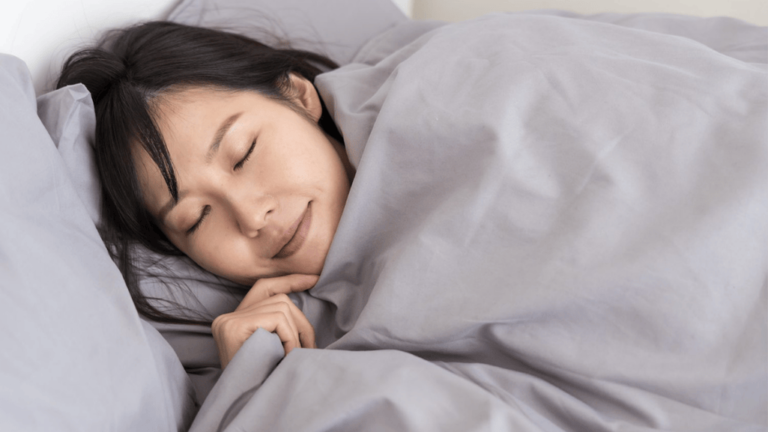Sleeping problems are all too common in America, with an estimated 35% of adults failing to get the recommended amount of sleep per night. In an effort to improve their rest, many people turn to sleep aids, which include prescription drugs, over-the-counter medications, and dietary supplements like melatonin. In fact, over 8% of adults report using a sleep aid multiple times in the previous week. With so many types of sleep aids available, it can be challenging to compare options like melatonin vs Tylenol PM and determine which one can best help you get a good night’s sleep.
Insomnia is the most common sleep disorder and is prevalent among individuals seeking sleep aids. While prescription drugs like Z drugs and orexin receptor antagonists are approved to treat insomnia, they can come with adverse effects such as daytime drowsiness, cognitive impairment, dependence, withdrawal symptoms, and abnormal thinking and behavior. Natural sleep supplements like melatonin, on the other hand, work with your body’s natural sleep-wake cycle and may be beneficial for reducing the time it takes to fall asleep with milder side effects.
When comparing sleep aids, it’s essential to consider factors like effectiveness, safety, ease of use, and cost. Store brands containing the same active ingredients as brand-name sleep aids like Tylenol PM, which contains diphenhydramine, are available at a more reasonable cost with similar risks and benefits. By understanding the different types of sleep aids and their potential benefits and drawbacks, you can make an informed decision about which option is right for you and take steps towards getting the restful sleep you need.
Key Takeaways
- Over a third of American adults struggle with getting enough sleep each night
- Sleep aids, including prescription drugs, over-the-counter medications, and dietary supplements, are commonly used to improve sleep
- Melatonin is a natural sleep supplement that works with your body’s sleep-wake cycle
- Tylenol PM contains diphenhydramine, a sedating antihistamine that can cause side effects like daytime drowsiness and dry mouth
- Comparing factors like effectiveness, safety, ease of use, and cost can help you choose the right sleep aid for your needs
Understanding Sleep Aids
In today’s fast-paced world, getting a good night’s sleep can be a challenge for many people. Whether it’s due to stress, anxiety, or other factors, difficulty falling asleep and staying asleep can have a significant impact on your overall health and well-being. Fortunately, there are various sleep aids available that can help you get the rest you need.
Sleep aids come in different forms, including over-the-counter sleep aids and prescription sleep aids. Over-the-counter sleep aids are readily available without a prescription and often contain antihistamines or natural ingredients like melatonin. Prescription sleep aids, on the other hand, are stronger medications that require a doctor’s prescription and are typically used for more severe cases of insomnia.
Types of Sleep Aids
There are several types of sleep aids available, each with its own unique benefits and potential side effects. Some of the most common types of sleep aids include:
- Melatonin supplements
- Antihistamines (such as diphenhydramine found in Tylenol PM)
- Prescription sedatives (like Ambien or Lunesta)
- Herbal remedies (such as valerian root or chamomile tea)
It’s important to consult with your healthcare provider before starting any new sleep aid, as they can help you determine which option is best suited for your individual needs and medical history.
How Sleep Aids Work
Most sleep aids work by producing a sedative effect on the body, helping to calm the nervous system and promote relaxation. This sedative effect can make you feel sleepy and help you fall asleep faster and stay asleep longer.
Sleep aids can be a helpful tool for managing occasional sleepless nights, but they should not be relied upon as a long-term solution for chronic insomnia.
It’s important to note that while sleep aids can be effective in the short term, they can also have potential side effects and risks, especially if used for an extended period. Some common side effects of sleep aids include:
| Side Effect | Description |
|---|---|
| Drowsiness | Feeling sleepy or groggy the next day |
| Dizziness | Feeling unsteady or lightheaded |
| Dry mouth | Decreased saliva production |
| Headache | Pain or discomfort in the head |
| Nausea | Feeling sick to your stomach |
If you experience any of these side effects or have concerns about using sleep aids, it’s essential to talk to your doctor. They can help you weigh the potential benefits and risks and determine the best course of action for your individual situation.
Melatonin: A Natural Sleep Remedy
For those seeking a natural approach to improving sleep quality, melatonin has emerged as a popular choice. This hormone, produced by the pineal gland in response to darkness, plays a crucial role in regulating the body’s circadian rhythm and sleep-wake cycle. As a natural sleep supplement, melatonin offers a gentler alternative to prescription sleep aids, which often come with a host of side effects.
What is Melatonin?
Melatonin is a hormone that is naturally produced by the body, primarily by the pineal gland in the brain. Its production increases in the evening as darkness falls, signaling to the body that it’s time to prepare for sleep. This process is an integral part of maintaining a healthy circadian rhythm, which governs the body’s internal clock and helps regulate sleep patterns.
In addition to its natural production, melatonin is also available as a dietary supplement. It comes in various forms, including tablets, capsules, gummies, and liquids, making it easy for individuals to find a method of consumption that suits their preferences.
Benefits of Melatonin
Melatonin offers a range of benefits for those struggling with sleep issues:
- Promotes better sleep quality: Melatonin can help individuals fall asleep faster and experience more restful, restorative sleep.
- Supports circadian rhythm regulation: For those with delayed sleep-wake phase disorder, melatonin supplements can help realign the body’s internal clock, making it easier to fall asleep and wake up at conventional times.
- Alleviates jet lag: Travelers who cross multiple time zones often experience jet lag, which can disrupt sleep patterns. Melatonin can help reduce the severity of jet lag symptoms and promote faster adjustment to new time zones.
- Non-habit forming: Unlike some prescription sleep medications, melatonin is not associated with a high risk of dependency or addiction.
“Melatonin’s role in regulating the sleep-wake cycle makes it a valuable tool for individuals seeking to improve their sleep quality naturally.” – Dr. Sarah Johnson, Sleep Specialist
Side Effects and Precautions
While melatonin is generally considered safe for short-term use, some individuals may experience side effects, such as:
- Drowsiness
- Headache
- Dizziness
- Nausea
It is essential to consult with a healthcare professional before starting melatonin supplements, especially if you have pre-existing medical conditions or are taking medications. Melatonin may interact with certain medications, such as blood pressure and diabetes medications, so caution is advised.
| Melatonin Dosage | Recommended Use |
|---|---|
| 0.5-5 mg | For occasional sleeplessness or jet lag |
| 2-10 mg | For circadian rhythm disorders or shift work |
Tylenol PM: An Over-the-Counter Sleep Aid
Tylenol PM is a popular over-the-counter sleep aid that combines the pain relief of acetaminophen with the antihistamine diphenhydramine. This nighttime pain relief medication is designed to help you fall asleep faster and stay asleep longer, while also providing relief from minor aches and pains that may disrupt your sleep.
The active ingredients in Tylenol PM are:
- Acetaminophen (500 mg): A pain reliever and fever reducer
- Diphenhydramine HCl (25 mg): An antihistamine that causes drowsiness
Diphenhydramine, the key ingredient responsible for the sleep-inducing effects of Tylenol PM, works by blocking histamine receptors in the brain, which can cause drowsiness. This effect, combined with the pain-relieving properties of acetaminophen, makes Tylenol PM an effective choice for those struggling with occasional sleeplessness due to minor pain or discomfort.
When considering Tylenol PM as a sleep aid, it’s essential to follow the recommended dosage and precautions. The product is intended for adults and children 12 years and older, with a suggested dose of two caplets at bedtime. It’s crucial not to exceed the recommended dose or take Tylenol PM for more than 10 consecutive days without consulting a healthcare professional.
Always read and follow the label instructions carefully when using any over-the-counter medication, including Tylenol PM.
While Tylenol PM can be an effective short-term solution for occasional sleeplessness, it’s important to note that it may not be suitable for everyone. If you have underlying health conditions, are taking other medications, or are pregnant or breastfeeding, it’s best to consult with your doctor before using this or any other sleep aid. Additionally, if you find yourself relying on Tylenol PM or other sleep aids regularly, it may be a sign of a more serious sleep disorder that requires medical attention.
For those seeking a comfortable and supportive sleep environment, choosing the right pillow size can also contribute to a better night’s rest. Proper pillow selection, along with the judicious use of sleep aids when necessary, can help you achieve the restful sleep you need to wake up feeling refreshed and ready to take on the day.
In summary, Tylenol PM is a widely used over-the-counter sleep aid that combines the benefits of a pain reliever and an antihistamine. While it can be helpful for occasional sleeplessness, it’s essential to use it responsibly, follow the recommended dosage, and consult with a healthcare professional if you have any concerns or underlying health issues. By understanding the role of sleep aids like Tylenol PM and making informed decisions about your sleep health, you can take steps towards achieving a more restful and rejuvenating night’s sleep.
Diphenhydramine: The Active Ingredient in Tylenol PM
Tylenol PM, a popular over-the-counter sleep aid, relies on the power of diphenhydramine to help you drift off into a peaceful slumber. As an antihistamine, diphenhydramine is commonly used to treat allergies, but its sedative properties make it an effective short-term solution for occasional sleeplessness.
How Diphenhydramine Works
Diphenhydramine belongs to a class of antihistamines known as sedating antihistamines. When taken as directed, it can help you fall asleep faster and stay asleep longer by blocking histamine receptors in the brain, which can cause drowsiness. Each Tylenol PM caplet contains 25 mg of diphenhydramine hydrochloride, along with 500 mg of acetaminophen for pain relief.
Diphenhydramine is a tried and true sleep aid that has helped countless individuals overcome occasional sleeplessness and wake up feeling refreshed.
Potential Side Effects
While diphenhydramine can be an effective sleep aid, it’s essential to be aware of potential side effects. These may include:
- Daytime drowsiness
- Dry mouth
- Constipation
- Urinary retention
It’s important to note that tolerance to the sedative effects of antihistamines like diphenhydramine can develop quickly. The longer you take them, the less likely they are to make you sleepy. Additionally, Tylenol PM should not be used by individuals under 12 years of age, and it’s crucial to avoid alcohol and operating machinery due to the drowsiness caused by diphenhydramine.
| Dosage | Age Group | Precautions |
|---|---|---|
| Two caplets at bedtime | 12 years and older | Do not take more than two caplets in 24 hours |
| Not recommended | Under 12 years old | Consult a doctor before use |
If sleeplessness persists continuously for more than 2 weeks, it’s recommended to seek medical help. In case of an overdose, immediate medical attention is crucial for both adults and children, even without noticeable symptoms. Always store Tylenol PM between 20-25°C (68-77°F) and consult product labels for guidance on dosing and potential risks before use.
Comparing Melatonin and Tylenol PM
When it comes to selecting a sleep aid, it’s essential to consider factors such as effectiveness, safety, and ease of use. Melatonin and Tylenol PM, two popular options, offer unique benefits and drawbacks that can impact your decision.
Effectiveness
Melatonin, a naturally occurring hormone, has been shown to provide modest improvements in sleep quality. A meta-analysis of studies found that melatonin supplements offer an average of 8 additional minutes of sleep per night compared to a placebo. While this may seem minimal, for those struggling with insomnia, every extra minute counts.
Tylenol PM, containing the antihistamine diphenhydramine, can be effective in inducing drowsiness and promoting sleep. However, its effects may be more pronounced and longer-lasting than melatonin, potentially leading to a “hangover effect” the following day.
Safety
Melatonin is generally considered safe for short-term use, with minimal side effects such as headaches, nausea, and daytime sleepiness. However, it’s crucial to be aware of potential interactions with other medications and to consult a healthcare professional before use.
Tylenol PM, while available over-the-counter, may pose risks for certain individuals. Diphenhydramine is not recommended for people with specific health conditions, including closed-angle glaucoma, peptic ulcers, and urinary retention. Additionally, sleep aids like Tylenol PM may be particularly concerning for pregnant or breastfeeding women and those over 65, as they may increase the risk of dementia.
Ease of Use
Both melatonin and Tylenol PM are relatively easy to use, as they are available in pill form and can be taken orally. However, the timing of administration may differ:
- Melatonin is typically taken 1-3 hours before bedtime, with a recommended dosage ranging from 2-3mg.
- Tylenol PM is usually taken just before bed, with the standard dose being 1-2 tablets.
It’s essential to follow the instructions provided and not exceed the recommended dosage to minimize the risk of side effects.
| Comparison | Melatonin | Tylenol PM |
|---|---|---|
| Active Ingredient | Melatonin | Acetaminophen, Diphenhydramine |
| Effectiveness | Modest improvements in sleep quality | Can induce drowsiness, but may cause hangover effect |
| Safety | Generally safe for short-term use | Not recommended for certain health conditions, may pose risks for specific populations |
| Ease of Use | Taken 1-3 hours before bedtime | Taken just before bed |
Melatonin vs Tylenol PM: Which is Right for You?
When it comes to choosing sleep remedies, it’s essential to understand the differences between popular options like melatonin and Tylenol PM. A meta-analysis from PLOS One found that melatonin could help people fall asleep faster, stay asleep longer, and improve sleep quality compared to a placebo in 19 randomized, controlled trials. Melatonin is also effective for treating jet lag and can help individuals adjust to new sleep schedules due to changes like daylight savings time or travel disruptions.
On the other hand, Tylenol PM contains diphenhydramine, an antihistamine that has been noted as an effective sleep aid for mild to moderate insomnia in a study from The Journal of Clinical Pharmacology. However, it’s important to be aware of the potential side effects and risks associated with diphenhydramine, such as drowsiness, dry mouth, and dizziness. With melatonin being a natural hormone, it is generally considered a safer option for most people.
When deciding between melatonin and Tylenol PM, consider the following factors:
- The severity of your sleep issues
- Your age and overall health
- Potential side effects and drug interactions
- The duration of your sleep problems
To help you make an informed decision, here’s a comparison table of melatonin and Tylenol PM:
| Factor | Melatonin | Tylenol PM |
|---|---|---|
| Active Ingredient | Melatonin (natural hormone) | Diphenhydramine (antihistamine) + Acetaminophen (pain reliever) |
| Dosage | 0.5 mg to 5 mg, 1-3 hours before bedtime | 1-2 tablets (25-50 mg diphenhydramine + 500-1000 mg acetaminophen) at bedtime |
| Effectiveness | Reduces sleep latency, improves sleep quality | Induces drowsiness, relieves mild pain |
| Side Effects | Minimal, may include daytime sleepiness, dizziness, headache | Drowsiness, dry mouth, dizziness, constipation |
“Ultimately, the choice between melatonin and Tylenol PM depends on your individual needs and preferences. It’s essential to consult with your healthcare provider to determine the best sleep aid for your specific situation and to ensure safe and effective use.”
Remember, while sleep aids can be helpful for short-term use, they should not be relied upon as a long-term solution for chronic sleep issues. Developing healthy sleep habits and addressing underlying causes of sleep disturbances are crucial for achieving lasting improvements in sleep quality.
Alternatives to Sleep Aids
While sleep aids can provide temporary relief for insomnia, they may not be the best long-term solution. In fact, relying on sleep aids for an extended period can lead to dependence and even worsen sleep problems. Fortunately, there are effective non-drug treatments available that can help you achieve a more restful night’s sleep without the potential side effects of medication.
Cognitive Behavioral Therapy for Insomnia (CBT-I)
Cognitive Behavioral Therapy for Insomnia (CBT-I) is a highly effective treatment option for those struggling with chronic sleep issues. This type of therapy focuses on identifying and changing thoughts and behaviors that interfere with sleep. A trained therapist works with you to develop personalized strategies for improving sleep quality, such as relaxation techniques, stimulus control, and sleep restriction. Unlike sleep aids, CBT-I addresses the underlying causes of insomnia, leading to lasting improvements in sleep patterns.
Research has shown that CBT-I can be as effective as medication for treating insomnia, with the added benefit of long-term sustainability. In a study published in the Journal of Clinical Sleep Medicine, participants who underwent CBT-I experienced significant improvements in sleep quality and duration compared to those who received sleep hygiene education alone. Furthermore, the benefits of CBT-I were maintained even after the therapy sessions ended, highlighting its potential for long-term success.
“CBT-I is a safe and effective treatment for chronic insomnia that can produce long-lasting improvements in sleep quality and daytime functioning.” – American Academy of Sleep Medicine
Developing Healthy Sleep Habits
In addition to CBT-I, adopting healthy sleep habits, also known as sleep hygiene, can make a significant difference in the quality and quantity of your sleep. Sleep hygiene involves creating an environment and routine that promotes consistent, uninterrupted sleep. Some key components of sleep hygiene include:
- Maintaining a regular sleep schedule, even on weekends
- Creating a relaxing bedtime routine to signal to your body that it’s time to sleep
- Ensuring your bedroom is quiet, dark, and at a comfortable temperature
- Avoiding stimulants like caffeine and nicotine close to bedtime
- Limiting screen time before bed, as the blue light emitted by electronic devices can interfere with sleep
Incorporating these sleep hygiene practices into your daily life can help regulate your body’s internal clock, making it easier to fall asleep and stay asleep throughout the night. While it may take some time to adjust to these new habits, the long-term benefits for your sleep and overall well-being are well worth the effort.
| Treatment | Effectiveness | Long-term Benefits |
|---|---|---|
| Sleep Aids | Provides temporary relief | May lead to dependence and worsen sleep problems |
| CBT-I | Highly effective, comparable to medication | Addresses underlying causes, leading to lasting improvements |
| Sleep Hygiene | Promotes consistent, uninterrupted sleep | Regulates body’s internal clock for long-term sleep quality |
By exploring non-drug treatments like CBT-I and committing to healthy sleep habits, you can break free from the cycle of relying on sleep aids and achieve the restful, rejuvenating sleep your body needs. Remember, while the journey to better sleep may take time and effort, the rewards of improved mental and physical well-being are invaluable.
When to Consult a Doctor
While occasional sleepless nights are common, persistent sleep issues may warrant a visit to your healthcare provider. If you find yourself struggling with sleep disorders, such as insomnia or sleep apnea, it’s essential to seek professional guidance. These conditions can have a profound impact on your overall health and well-being, and addressing them promptly is crucial.
Chronic Insomnia
Chronic insomnia, characterized by difficulty falling asleep or staying asleep for an extended period, affects millions of Americans. If you’ve been battling insomnia for more than a month, it’s time to consult your doctor. They can help identify the underlying causes and develop a personalized treatment plan, which may include cognitive behavioral therapy for insomnia (CBT-I), lifestyle changes, or medication.
Remember, quality sleep is vital for maintaining optimal health. Investing in a comfortable sleep environment, such as using silk pillowcases, can contribute to better sleep quality. However, if chronic insomnia persists, professional intervention is necessary.
Underlying Health Conditions
In some cases, sleep disturbances may be a symptom of an underlying health issue. Medical conditions such as sleep apnea, restless leg syndrome, or chronic pain can significantly impact your ability to get a good night’s rest. If you suspect that an underlying condition is affecting your sleep, it’s crucial to discuss your concerns with your healthcare provider.
Between 50 and 70 million Americans have ongoing sleep disorders, such as insomnia or sleep apnea. If you continue to have trouble sleeping, talk to your health care provider.
Your doctor may recommend specific tests or evaluations to diagnose any underlying health issues. By addressing these conditions, you can often improve your sleep quality and overall well-being.
Remember, your healthcare provider is your partner in achieving optimal health. Don’t hesitate to reach out if you’re experiencing persistent sleep disturbances or suspect an underlying medical condition. With the right support and interventions, you can reclaim the restful, rejuvenating sleep you deserve.
The Importance of Quality Sleep
Getting enough quality sleep is essential for maintaining good health and overall well-being. When we sleep, our bodies have the opportunity to repair and rejuvenate, allowing us to wake up feeling refreshed and ready to take on the day. However, many people struggle with sleep deprivation, which can lead to a host of negative health consequences.
According to a 2021 systematic review, 36 percent of people in the U.S. and 12 other countries experienced sleep problems during the pandemic. Additionally, a report from the American Psychological Association revealed that 32 percent of U.S. adults reported changes in sleeping habits due to pandemic-related stress. These statistics highlight the widespread nature of sleep issues and the need for effective solutions.
Chronic sleep deprivation can have serious effects on both physical and mental health. Some potential consequences include:
- Weakened immune system
- Increased risk of obesity, diabetes, and cardiovascular disease
- Impaired cognitive function and memory
- Mood disturbances, such as irritability and depression
- Decreased productivity and performance at work or school
“Sleep is the golden chain that ties health and our bodies together.” – Thomas Dekker
Given the importance of quality sleep for overall health and well-being, it’s no surprise that the global sleep aids market is growing rapidly. In 2022, the market was valued at $67 billion and is projected to reach $130 billion by 2032. This growth reflects the increasing demand for products and solutions that can help individuals achieve better sleep.
While sleep aids can be helpful for some people, it’s important to remember that they are not a long-term solution for chronic sleep issues. Developing healthy sleep habits and addressing underlying causes of sleep problems is crucial for achieving lasting improvements in sleep quality. By prioritizing sleep and taking steps to improve sleep hygiene, individuals can work towards enjoying the numerous benefits of a good night’s rest.
Tips for Better Sleep
While sleep aids like melatonin and Tylenol PM can be helpful for occasional sleeplessness, developing healthy sleep habits and optimizing your sleep environment are essential for achieving consistent, quality sleep. By making a few simple changes to your daily routine and bedroom setup, you can significantly improve your sleep hygiene and establish a more restful sleep schedule.
Establish a Consistent Sleep Schedule
One of the most important aspects of good sleep hygiene is maintaining a regular sleep schedule. Try to go to bed and wake up at the same time every day, even on weekends. This helps regulate your body’s internal clock, making it easier to fall asleep and wake up naturally. Aim for 7-9 hours of sleep per night, as recommended by sleep experts.
Create a Relaxing Bedtime Routine
Establishing a calming bedtime routine can signal to your body that it’s time to wind down and prepare for sleep. Some relaxing activities to incorporate into your routine include:
- Taking a warm bath or shower
- Reading a book
- Practicing gentle stretching or yoga
- Engaging in deep breathing exercises or meditation
Avoid stimulating activities like watching television, using electronic devices, or working close to bedtime, as these can interfere with your ability to fall asleep.
Optimize Your Sleep Environment
Creating a comfortable and conducive sleep environment is crucial for promoting better sleep. Consider the following factors when optimizing your bedroom:
- Temperature: Keep your bedroom cool, around 60-67°F (15-19°C), as a slightly cooler room can help facilitate sleep.
- Darkness: Use blackout curtains, shades, or an eye mask to block out light, which can interfere with your sleep cycle.
- Noise: If you’re sensitive to noise, use earplugs or a white noise machine to minimize disruptive sounds.
- Comfort: Invest in a supportive mattress, pillows, and bedding that promote proper spinal alignment and pressure relief.
By implementing these tips and focusing on developing healthy sleep habits, you can work towards achieving more restful, restorative sleep without relying on sleep aids. Remember, if you continue to experience chronic sleep issues despite making lifestyle changes, it’s essential to consult with a healthcare professional to rule out underlying health conditions and discuss further treatment options.
Conclusion
When it comes to melatonin vs Tylenol PM, both are viable sleep aid options for those struggling with occasional sleeplessness. However, it’s crucial to understand their differences and potential risks. Melatonin, a natural hormone, is generally considered safer with fewer side effects when taken at the recommended dosage of 2 to 3mg one to three hours before bed. On the other hand, Tylenol PM contains diphenhydramine, an antihistamine that can cause cognitive decline and confusion in older adults. It’s essential to consult with a doctor to determine the best choice for your specific needs, especially if you have underlying health conditions or are taking other medications.
In addition to sleep aids, exploring non-drug treatments like cognitive behavioral therapy for insomnia (CBT-I) and developing healthy sleep habits can lead to long-term improvements in better sleep quality. Establishing a consistent sleep schedule, creating a relaxing bedtime routine, and optimizing your sleep environment are all effective strategies for promoting better rest. It’s also important to be aware of the potential dangers of sleep aid misuse, as highlighted in a recent study published in the Journal of Analytical Toxicology, which discussed the case of a young woman whose death was attributed to acute combined diphenhydramine and melatonin toxicity.
By understanding the differences between melatonin and Tylenol PM, as well as the importance of quality sleep, you can make informed decisions to achieve better rest and overall health. Remember, if you experience chronic insomnia or have underlying health conditions, it’s always best to consult with a doctor to develop a personalized treatment plan. With the right approach and a commitment to healthy sleep habits, you can overcome sleeplessness and enjoy the numerous benefits of a well-rested mind and body.












